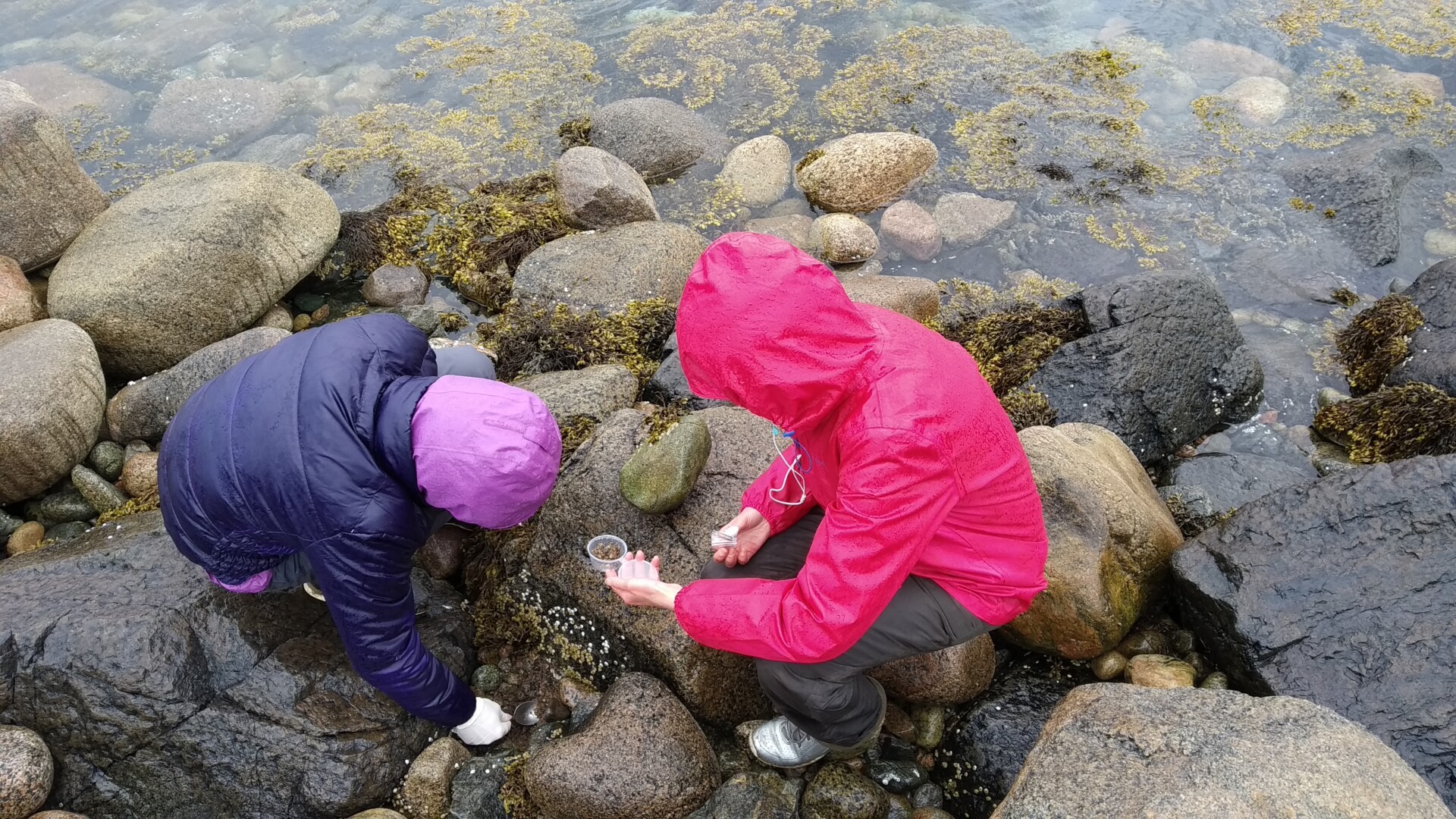
The Arctic Coast Bioremediation project staff collecting samples by the Barents sea shore
The risk of oil spills has become a real threat due to development of the oil and gas industry and transportation activities in the Arctic. Oil spills in the vicinity of the coast are the most dangerous, as their effects can last for years and even decades. The project “Arctic Coast Bioremediation” has aimed at finding a technological solution to minimize the oil spill effects.
The project developed an integrated biotechnology for cleaning oil-contaminated coastal areas of the Arctic seas, including methods of bioremediation (biostimulation, bioaugmentation, biological-sorption treatment and phytoremediation) applied separately or together.
Bioaugmentation with two local arctic oil-degrading biopreparations: based on microfungi (Tolypocladium inflatum, Meyerozima guilliermondii) and based on microfungi and bacteria (Penicillium janthinellum, Penicillium simplicissimum, Pseudomonas fluorescens, Pseudomonas putida) were shown to enhance oil biodegradation at low temperature. However, the fungal inoculum caused changes to the native microbial community. The biotechnology can be applied at the final stage of coast cleanup, and as the only cleanup method in vulnerable areas.
Advantages of this technology are:
– natural cleanup mechanisms;
– low impact on environmental objects, making the cleanup possible without major damage to coastal ecosystems;
– relatively low costs and requirements for personnel qualifications.
Furthermore, the project gained new knowledge on the native microbial community in arctic seawater, seashore sand and soil and knowledge on new so far unknown oil degradation genes that can be exploited in the future.
Basic information about the project is available on KEEP database
Project: Arctic Coast Bioremediaton
Lead partner: FBI State Regional Centre for Standardization, Metrology and Testing in the Murmansk Region (MCSM), Murmansk
Other partners:
- Institute of Industrial Ecology Problems of the North of the Kola Science Center of Russian Academy of Science (INEP KSC RAS), Apatity
- OOO Storvik Consult, Murmansk
- Finnish Environment Institute (SYKE), Helsinki
- UiT – The Arctic University of Norway, Tromsö
